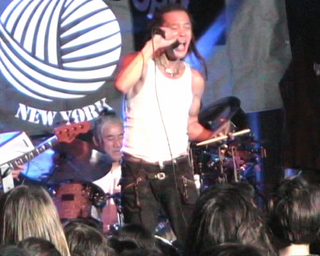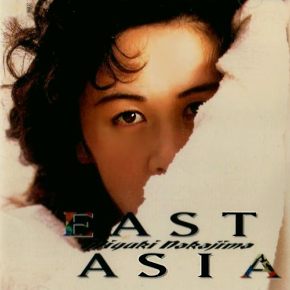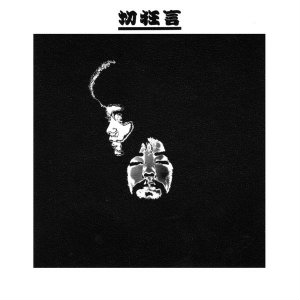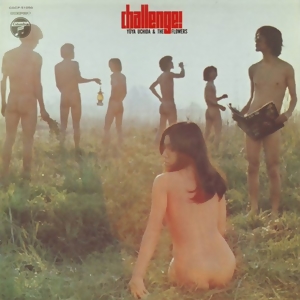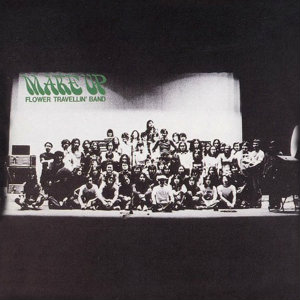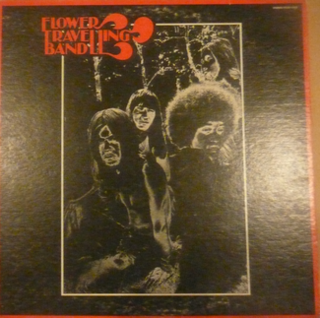| We Are Here | ||||
|---|---|---|---|---|
 | ||||
| Studio album by Flower Travellin' Band | ||||
| Released | September 17, 2008 | |||
| Recorded | May – June, 2008 | |||
| Studio | Chlaet Studio, Ontario, Canada | |||
| Genre | Acid rock | |||
| Length | 50:15 | |||
| Label | Pony Canyon | |||
| Producer | Ben Kobayashi | |||
| Flower Travellin' Band chronology | ||||
| ||||
We Are Here is the fifth and final album by Japanese rock band Flower Travellin' Band, released in September 2008 by Pony Canyon Records. [1] It is their only album after reuniting in November 2007 and the only one to feature keyboardist Nobuhiko Shinohara as a full member. We Are Here peaked at number 299 on the Oricon chart. [2]
Rock music is a broad genre of popular music that originated as "rock and roll" in the United States in the early 1950s, and developed into a range of different styles in the 1960s and later, particularly in the United Kingdom and in the United States. It has its roots in 1940s and 1950s rock and roll, a style which drew heavily on the genres of blues, rhythm and blues, and from country music. Rock music also drew strongly on a number of other genres such as electric blues and folk, and incorporated influences from jazz, classical and other musical styles. Musically, rock has centered on the electric guitar, usually as part of a rock group with electric bass, drums, and one or more singers. Usually, rock is song-based music usually with a 4/4 time signature using a verse–chorus form, but the genre has become extremely diverse. Like pop music, lyrics often stress romantic love but also address a wide variety of other themes that are frequently social or political.

Flower Travellin' Band were a Japanese rock band that was formed in 1967. They were connected to Japan's counterculture movement and noted for their mixture of early heavy metal with psychedelic and progressive rock. They received wide acclaim from critics but failed to achieve commercial success and separated in 1973 to pursue individual careers. The band reunited in late 2007, but permanently disbanded after the 2011 death of vocalist Joe Yamanaka.
Oricon Inc., established in 1999, is the holding company at the head of a Japanese corporate group that supplies statistics and information on music and the music industry in Japan. It started as Original Confidence Inc., which was founded by Sōkō Koike in November 1967 and became known for its music charts. Oricon Inc. was originally set up as a subsidiary of Original Confidence and took over the latter’s Oricon record charts in April 2002.

